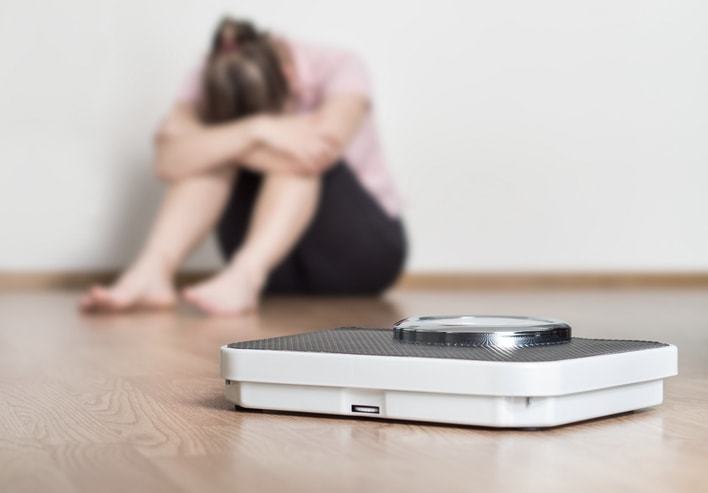 If you’re overweight or obese, you’re probably already aware of the health risks that come along with it such as high blood pressure, diabetes, and heart disease. What many people aren’t aware of is that obesity and depression can go hand in hand.
If you’re overweight or obese, you’re probably already aware of the health risks that come along with it such as high blood pressure, diabetes, and heart disease. What many people aren’t aware of is that obesity and depression can go hand in hand.
What Is Obesity?
Obesity is a medical condition in which excess body fat has amassed to the point where it can cause negative health effects. According to the Center for Disease Control (CDC), when your weight is more than what is considered a healthy weight for your height, it falls into the overweight or obese range.
Using a measure called Body Mass Index (BMI), you can determine if you’re overweight or obese. A BMI Calculator can help you determine your BMI.
- If your BMI is from 25.0 to <30, you’re in the overweight range
- If your BMI is from 30.0 or higher, you’re in the obese range
What Is Depression?
Everyone feels “blue” at times, but depression is feeling low for extended periods of time. Depression can cause serious symptoms that affect how you feel, think, and carry out daily activities, such as eating, working, or sleeping. These symptoms must be present for at least two weeks for you to be diagnosed with depression.
What Is the Relationship Between Obesity & Depression?
According to the CDC, people with depression were more likely to be obese than those without depression. When taking a closer look at the relationship between obesity and depression, it’s like “the chicken and the egg” phenomenon in determining which came first. Research shows that the two feed off each other and create a destructive depression-obesity cycle.
Obesity Causes Depression: People who are obese experience many different social, mental, and lifestyle issues that can lead to depression. Problems with body image, social isolation and self-esteem can easily permeate an obese person’s life. Being overweight can be a significant cause of dissatisfaction, sadness, and frustration. Extra weight can cause chronic joint pain, which inhibits your ability to get around, enjoy life, or exercise.
Depression Causes Obesity: People who are depressed tend to look to food to make them feel better, but it’s a quick fix that doesn’t last long. Foods high in sugar and fat can make you feel better, motivating you to eat more. As the pounds pile up, eating those foods make you feel bad about yourself, which can lead to deepening depression, more eating, and more weight gain.
Depression-Obesity Cycle Symptoms
If you’re gaining weight, overweight, or obese, and you have any of the following depressive symptoms, you may be caught in the depression-obesity cycle:
- Feeling sad or anxious and those feelings are not improving over time
- Feeling hopeless and have problems becoming optimistic about your life
- Feeling worthless or think constantly about your failures
- Suicidal thoughts.
- Extremely restless or irritable.
Breaking the vicious cycle of depression and obesity can be challenging, but there are treatment options.
Treatment Options
Visit an experienced depression and obesity doctor if your weight gain or obesity is associated with symptoms of depression. Your road to overall better health can be treated using some of the following treatment options:
- Nutritional counseling
- Weight loss support groups
- Depression treatment
- Weight loss medication
- Non-surgical weight loss procedure
- Surgical weight loss procedure
If you’re suffering from obesity and depression, visit a Weight Loss and Wellness Center in New Jersey for depression and obesity help. We use personalized support and state-of-the-art treatment options to help you regain control of your life and health. Call us today at 973-240-9346 or click here to schedule a consultation.

